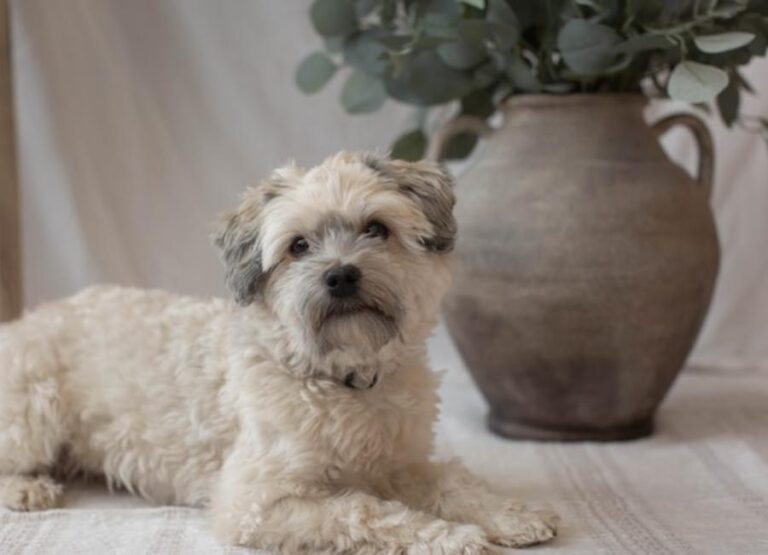Corgi Separation Anxiety (Signs, Causes, & 8 Tips)

Corgi separation anxiety will become a serious problem for you and your corgi if left unchecked in both Pembroke and Welsh Corgi.
So in this post, we will be discussing the signs, causes, and prevention of corgi separation anxiety.
If left unchecked corgi separation anxiety can lead to unnecessary behaviors such as barking, house accidents, destructive chewing, etc.
Let’s explain corgi separation anxiety without wasting much time before we proceed to other things.
Corgi separation anxiety
Corgi separation anxiety may be considered a behavioral issue or a panicked mental state brought on by the dread of being abandoned or left alone for an extended period of time.
When corgis are in a panicked condition, they may engage in needless harmful activities including chewing on possessions, nipping, barking, digging, and more.
If you are not prepared to engage in corgi mental stimulation activities, avoid getting a corgi.
Now you understand what corgi separation anxiety is let’s look at some common signs of corgi separation anxiety!
Corgi separation anxiety signs

These are some typical signs of separation anxiety in corgis:
1. Sudden excessive barking behavior
Even though corgis are known to be loud, there are limits to their barking which can be corrected.
However, when you keep noticing sudden and continuous barking behavior each time you try to leave then you need to pay attention.
This increased barking behavior in corgis is a sign they are not comfortable staying alone.
If ignored and not fixed over time it becomes a problem for you, your corgi, and your neighborhood.
2. Destructive chewing of valuables
Another common sign of corgi separation anxiety is the destructive chewing of things when left alone.
Corgis engage in chewing valuables as a way of relieving themselves from anxiety.
You should know that corgis are originally herding dogs with lots of energy to spare and leaving them with nothing to do with such energy is not good.
When corgis with their high energy are left alone for long they develop separation anxiety and can chew stuff in your house to get relief.
3. Sudden digging behavior
Digging due to separation anxiety in corgis includes digging their beds or cage base.
One of the most frequent reasons why corgis dig up your yard, fence posts, bed, or basement is separation anxiety.
They dig to pass the time and avoid boredom or loneliness when they are idle or have nothing better to do.
If you come home to discover your corgi digging in your yard, cellar, bed, or fence base because of separation anxiety, you must take action.
That is a blatant sign of boredom in your corgi, and ignoring it will only make matters worse.
4. Sudden clingy behavior
This sudden increased clingy behavior mostly happens when you are about to leave for work or anywhere.
Due to the fear of being alone at home, your corgi develops this clingy behavior of following you up and down.
This is clear especially when there are signs you are leaving such as looking at the doors of your house or picking up keys.
Corgi separation anxiety can set in as soon as you leave your corgi at home without any form of engagement.
5. Potty accidents when left alone
Even if your corgi is fully housebroken, assume that he still accidents when you leave and return then something is wrong.
This is a blatant sign that your corgi is worried about you while you’re away, and things will only become worse if nothing is done about it.
Keep a watch on your puppy or adult corgis in case they start eating their own waste out of fear.
No matter how uncomfortable this symptom is, you may either take action to prevent it or just treat the underlying condition that is giving you worry.
6. Sudden scratching of doors or walls
When away from their owners, Corgis frequently feel anxious and sad, which can result in their scratching at walls and doors.
If your corgi suffers from separation anxiety, you’ll see him clawing the exit door as you head out for work.
Another sign of anxiety brought on by being alone is your corgi’s propensity to scratch at the walls.
Your corgi’s separation anxiety is hurting you if you return home to find scratches on your walls or doors.
7. Constantly trying to escape
When your corgi is sacred or has separation anxiety, he will exert every effort to leave the house in order to find you or make some new friends.
In an effort to force him to leave because he is terrified, your corgi could hit his head, teeth, and body against the cage bars, hurting himself in the process.
Watch out for your corgi trying to run as you leave the house.
This is a major problem since it shows that your corgi has separation anxiety as a result of his fear of being left alone.
Causes of corgi separation anxiety
The following are a few typical reasons why corgis experience separation anxiety:
- Making a big deal out of departure or arrival.
- Continuous changing of your corgis daily routine.
- Leaving your corgi alone unattended for too long.
- An effect of traumatic experience on your corgi.
- Lack of mental stimulation activities for your corgi.
- Improper crate training or confinement training.
- Constantly changing your corgi environment.
- Constantly changing corgi ownership.
- Prolonged absence of corgi beloved owner.
- Corgi’s inability to hear or weak vision.
- Constantly changing mealtimes.
- Poor socialization or too much stress around your corgi.
- Being abandoned by owners.
Ways of preventing corgi separation anxiety
The following are the most typical and suggested methods for helping corgis deal with separation anxiety:
1. Create a calming spot
Most corgi feels secure in their own zone, which is why the majority of unsocialized dogs won’t let humans or other animals into their space, even their bed or room.
To assist your dog deal with separation anxiety, provide a reference point where he identifies the surroundings as being calm and pleasant.
Make sure the corgi has everything he needs at the reference site, including a chew toy or soothing music, so he can recognize it as a secure place right away.
While you can occasionally go with your dog there, you should never compel a corgi to leave its comfort zone. Instead, let the corgi leave on its own terms.
2. Maintain a daily routine
Since he will always know what to expect, your corgi will be calmer. Always keep them occupied and interested.
Your corgi won’t get bored or realize you’re gone since he’ll be busy for the bulk of the day.
Create a schedule for the day that works for you and your corgi, and assign as much work as you can.
Don’t wait till your corgi is at ease before practicing when it’s time to feed.
The majority of your issues will be resolved if you and your corgi create a schedule that works for both of you.
3. Proper crate training
Effective crate training sessions over time can reduce the chances of corgi separation anxiety.
For a variety of issues, including separation anxiety, crate training is a popular technique for puppy training.
Crate training may offer your corgi a secure and tranquil environment when you must be away for an extended period of time.
The goal is to get the corgi excited about his kennel by connecting fun things like chew toys and food-releasing puzzle games to it.
Watch your puppy’s behavior to observe whether his anxiety symptoms reduce or get worse. Corgis may feel safer and more at peace when left alone.
4. Provide anti-anxiety products for corgis with separation anxiety
You might need to give your dog medicine to help them calm down if they grow upset when you leave. Your dog can benefit from anti-anxiety drugs.
A veterinarian can assist if you and your dog are unable to fix your dog’s behavioral issues through changes or training.
Before you depart, talk to your vet about any possible drugs you may give your dog to make them more relaxed.
Get anti-anxiety drugs from your veterinarian and spend more time with your dog to completely stop separation anxiety.
5. Provide a companion pet
Because they are pack animals, dogs flourish when they are surrounded by more family members.
Due to their meticulous creation to be a human companion and their propensity for human companionship, the majority of dogs are prone to separation anxiety.
Having a companion animal as soon as possible is one of the greatest, if not the best, ways to reduce separation anxiety in dogs if you can’t be with them all the time.
Your dog will be less likely to have separation anxiety if you have a companion animal.
Therefore, get your dog a companion animal to lessen separation anxiety.
If you buy another dog or pet, your dog will always have a friend.
6. Avoid any or all exit signals
Avoid using any leave signals, like as picking up your keys, since corgis may develop separation anxiety.
Don’t make a big deal out of leaving or coming back for the day.
During your exit, keep your distance and avoid touching, talking, or locking eyes.
Many dog trainers agree that you should begin teaching your dog that being away from you isn’t all awful as soon as you get home.
Depending on how fearful the dog is, you might need to enforce the rule for five minutes or even an hour before leaving and returning.
7. Exercise your corgi before leaving
Before you go, exhaust your corgi’s energy by taking him on a long walk or by playing the fetch game.
Corgis are energetic, lively dogs who require continual exercise to keep in shape.
Make sure your corgi gets adequate activity since this will encourage them to unwind and have a protracted nap.
8. Invite someone or hire a pet sitter
You can invite your trusted friend or family member to check on your corgi if you will be away for longer than before.
This should be your last choice after crate training and other methods.
Consider hiring a dog sitter if you’ll be gone much of the day.
A dog sitter for your dog will cost between $20 and $35, depending on your state, any contracts, and who would babysit your dog.
As a result, the pet sitter will visit your dog often while you are gone till you get back.
I hope this information gives you an insight on corgi separation anxiety.

![Dog Not Eating While Owners On Vacation [7 Reasons & Fix] Dog Not Eating While Owners On Vacation](https://petcreeks.com/wp-content/uploads/2023/02/Dog-Not-Eating-While-Owners-On-Vacation-768x555.jpg)




